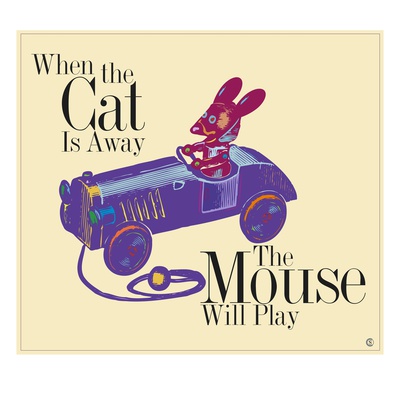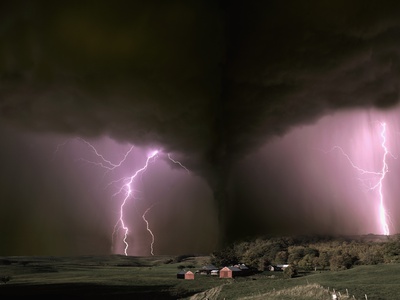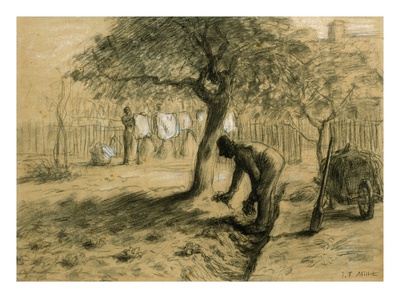Wikipedia defines pessimism as a state of mind in which one perceives life negatively. It defines optimism as a mental attitude that interprets situations and events as being best (positive). That seems pretty simple, right? Maybe not. If you always see things negatively, one would believe that you are always negative, however depressed people often have their fun moments (being one, I should know). On the other hand, as an optimist, one should always be up and happy, however that isn’t always the case either. So how do we know if we, or someone we know, are pessimistic or optimistic?

Are you a pessimist or an optimist?
by cherylone
A serious, and not so serious look at the meanings of pessimist and optimist. How they clash, and how they mix.
Tough questions:
Well, a pessimist always sees things negatively. So they might see a child hanging on a branch from an old tree and comment that the child will probably fall because the tree is so old. If that person then pushes for the child to get down so they don’t get hurt, does that mean they were being positive or negative?
Let’s try again. An optimist always sees things positively. So, let’s take the same scenario where the child is in the tree. The optimist will say the child looks happy in the tree, until the child falls out of the tree and gets hurt. Then the optimist will, what will they do?
Will they scream for help (not very positive)? Will they call for someone to check on the child (again not very positive)? Will they say it was the child’s own fault (how negative can one person get)? So are they positive or negative, pessimist or optimist?
I believe it was Henry Ford who said:
“If you think you can, or you think you can’t, you are right!” Now what do you think he meant by that? Did he mean that you can and you can’t? That wouldn’t make sense, would it? I mean you can’t get and not get at the same time, can you? Or did he mean that whatever you think will happen, will happen? That doesn’t make sense either, because when we are sad about some event that is probably going to happen but we think it won’t, and it still does, we didn’t change anything, did we?
Hmmmm, quite the question, isn't it? Pessimist or Optimist?
Let's try something else.
Ummm, let's see....
If a woman believes that her car will start every morning regardless of her failing to do maintenance on it, does that mean that no matter what else happens her car will start? I doubt that very much. None of my cars will run forever, though I really wish they would. So if her neighbor believes that her car will never start no matter how much work she gets done on it, does that mean the car will never start for her despite promises from the mechanic that it is fine? I doubt that as well.
I'm beginning to run out of ideas here,
Maybe just one more time.
If you are a pessimist, then you are always negative. We have that fact, right? Ok, and if you are an optimist, then you are always positive, right? Well, I have been around for quite some time (no I will not tell you how long), but I can honestly say that I have never seen anyone who is permanently negative or permanently positive without some veering in their lives somewhere. So, is there no such thing as pessimist and optimist? Ummmm, I think perhaps there are, but in a different aspect.
Perhaps it is like this:
Perhaps, when someone is ‘always’ pessimistic, that means they always try to see the negative side of something. And when someone is ‘always’ optimistic, that means they always try to see the positive side of something. Oh, I think we may be on to something. So that storm is.........(quick are you thinking pessimist or optimist?)
OK, so let's test the theory:
A woman is baking bread with lots of young children in the kitchen. She turns the oven on to 400 degrees and tells the children to leave it alone. The children, curious about what she is doing with the bread, get closer to the hot oven.
What would you see?
A pessimist would see a situation where the children are disobeying the woman and will probably get badly burned as a consequence. An optimist would see a situation where the children are being curious children and the woman will see that they are curious and she will take the time to explain to them what she is doing and they will learn from it. Ok, I think we might have the hang of this now.
Let's try one more:
A man plants a vegetable garden for the first time and has followed all of the directions he read in a gardening book. Then, he sits on the porch and waits to see what will come of all his hard work.
If he is a pessimist, he will think nothing will come up and the garden really was a bad idea like his wife said. If he is an optimist, he will believe that something will grow and he might get fresh vegetables this year. Did we do it? Are we right?
Now, let's get to the hard part.
If these people think either negative or positive in how they perceive things, does that mean that they will automatically think either negative or positive about things that happen to the opposite? I mean if someone is pessimistic about a person jumping in the water, then he will probably think the person will hit their head on a rock and get seriously injured. Now what happens to his way of thinking, if the person jumps into the water and then swims to shore without incident? Does he then believe that he was wrong? Or does he believe that the person just got lucky and won’t be lucky the next time they do it?
I don't know about you, but I'm not going to think (or be) negative in this pool!
Are you as confused as I am?
All of this negative, positive, good, bad, happy, sad, well, it’s just too much for me to keep in my brain. I think I will have to just let it all flow out into one big mixed up mess. Wait! That’s it! It’s one big mess! No, I didn’t mean it exactly like that. What I meant was it all flows together; like a big river with lots of small brooks and creeks pouring into it.
Some of those brooks and creeks came from a swamp with lots of bugs and nasty critters, and some of those brooks and creeks came from lakes with clear clean water that flows over a bright waterfall and creates a rainbow. Both of them come from different origins, but they still end up in the same place. So whether you are an optimist or a pessimist, the result is the same, but how you PERCEIVE it is different.
Finally, something that makes sense.
When Henry Ford said, “If you think you can, or you think you can’t, you are right!”; what he meant was that whatever happens will be seen either as a step towards your goal, or a kick away from your goal. Now I get it!
Take this quiz to see if you are pessemistic or optimistic...
You might also like
Myths Uncovered about Southern StereotypesHollywood, politics, the media, and others choose to paint Southerners as dum...
Newly Single, Now What?Newly single and struggling? Things you can do to ease the transition from be...











 Fruit and vegetable juice or whole fruits and vegetables, which is better for youon 04/23/2013
Fruit and vegetable juice or whole fruits and vegetables, which is better for youon 04/23/2013
 How to use memory wire to create jewelryon 12/19/2012
How to use memory wire to create jewelryon 12/19/2012
 The Spriteon 11/27/2012
The Spriteon 11/27/2012
 How to keep your feline companions safe and content during the holiday seasonon 11/10/2012
How to keep your feline companions safe and content during the holiday seasonon 11/10/2012


Comments
Glad to meet you as well, Katiem2, thanks for stopping by and commenting.
I'm a hopeless optimist glad to meet you :)
How right you are, Flora, people can be so judgemental! Thanks for reading and commenting.
I wrote an article on that other site about confusing negativity and positivity with realism. It seems that my comments were often misinterpreted because people were not looking at when I made them. I made really negative comments in the early hours of the morning when my insomnia had made it impossible for me to get any sleep yet. So people would interpret me as a pessimist always. Context is so important. It's too bad people don't look at the context when judging others.